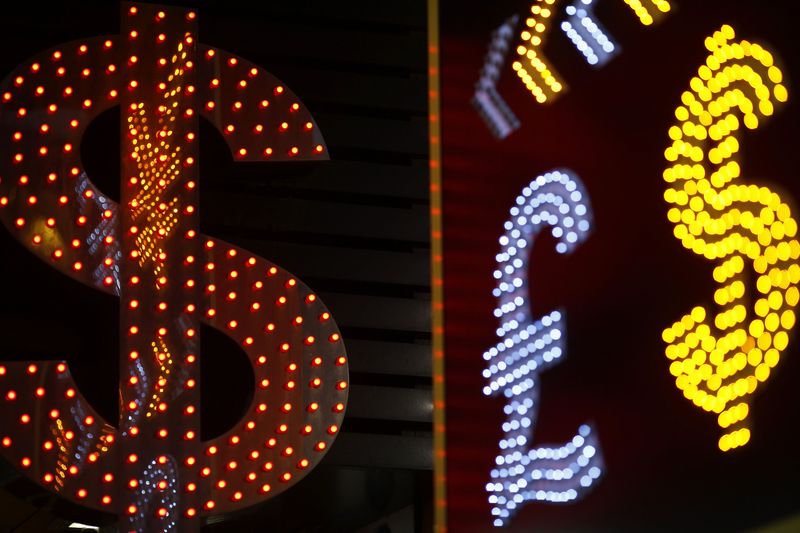(Updates prices, adds more quotes)
* Aussie slumps after China PMI survey falls to 15-month low
* Euro dips on poorer German survey
* Questions over dollar rally continue to weigh on market
By Patrick Graham
LONDON, July 24 (Reuters) - The Australian dollar sank to a six-year low and other currencies linked to global commodities prices were under pressure on Friday after the weakest reading on sentiment in Chinese manufacturing in more than a year.
With the euro, yen and dollar in tight ranges, traders were also focusing on the yuan, China's closely controlled currency, which fell after Beijing said it would relax its trading bands against the dollar. CNH= CNY=
The Aussie, often used as a liquid proxy for China trades, fell more than 1 percent to $0.7278 AUD=D4 in Europe, after the July survey of purchasing managers (PMI) deepened worries over the world's second-largest economy. ID:nS7N0ZB006
Slowing Chinese growth means less demand for commodities such as iron ore, one of Australia's chief exports. The recent decline in a wide range of commodities, including oil, has weighed on currencies like the Canadian and Australian dollars.
"The decline in commodities prices recently is still to be fully priced in to the Aussie," said Michael Sneyd, a strategist with BNP Paribas in London. "If it isn't then we think the Reserve Bank (of Australia) will deliver (interest rate) cuts, something which isn't priced in to the market."
Sneyd said money market pricing showed only a 50 percent chance of a quarter point cut in Aussie interest rates over the coming months, at a time when policymakers in New Zealand cut this week and signalled more was likely.
He forecast the Aussie to fall to $0.70 at the end of the year and by another 5 percent against the kiwi.
A slightly weaker PMI survey in Germany prodded the euro 0.3 percent lower against the dollar after breaching $1.10 for the first time in more than a week on Thursday.
The main trend of this week, however, has been the halting of improvement for the dollar, again casting doubt on how fast the U.S. currency can rally further.
On the one hand, U.S. data has been fairly solid and the mood music from the Federal Reserve supportive of a rise in interest rates. But if China continues to struggle, doubts about global growth will grow.
"If you believe U.S. rates will go up, the dollar is the choice. But if you do not have confidence in the global economy, the yen will be your destination," said Koji Fukaya, president of FPG Securities in Tokyo.
The euro fell to $1.0942 EUR= after weaker than expected readings from German and euro zone PMI surveys but was still more than a cent above last week's 3-month low of $1.0808.
The dollar trod water at 123.92 yen JPY= but was 0.3 percent higher against a basket of currencies on the back of the euro move.
A note from research house Lombard Street returned to the argument, floated by Deutsche Bank earlier this year, that Europe's enormous current account surplus was increasingly being invested externally - and was likely to weaken the euro.
Lombard economist Richard Batley said at the current rate of 100 billion euros in outflows every quarter it could take 20 years for investment flows to rebalance. "(This) is large enough to weigh durably on the single currency," he said.
